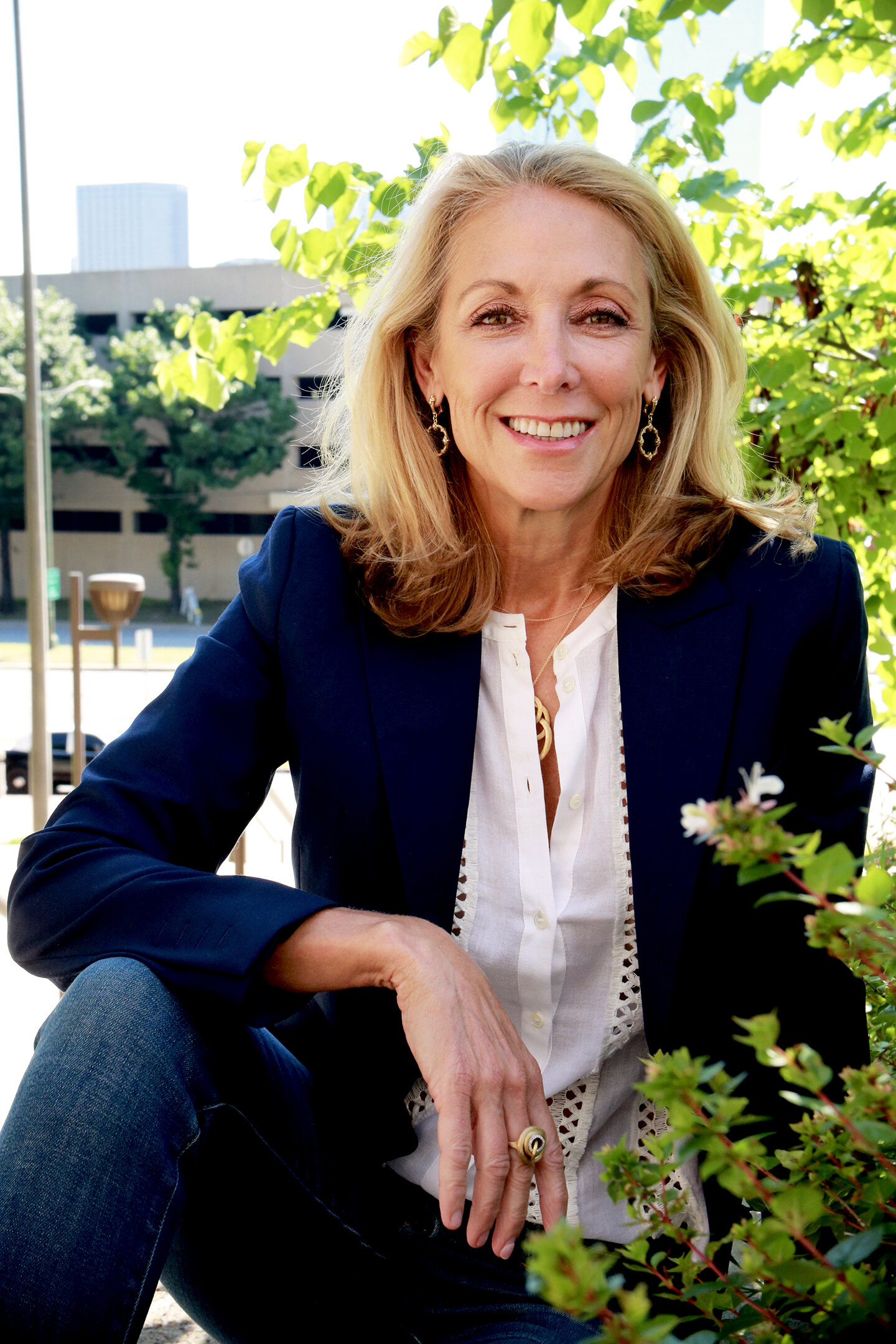Published May 17, 2020 at 5:15pm.
Story by Michelle Ramstead. Photos by Jan Osborn.
Terry Bentley Hill is a nationally recognized, award winning mental health advocate and criminal defense attorney in Dallas. Through her law practice, she works with clients suffering from mental illness and substance use disorders with the goal to rehabilitate rather than incarcerate. She is also a suicide Survivor, having lost her first husband and daughter to depression, and her personal tragedies have motivated her to embark on a journey of mental health education and healing.

Like so many at the start of this pandemic, Terry struggled to adjust to the sudden changes brought on by mandatory social distancing. In addition to the fear of the unknown, staying home meant that her days were no longer filled with her law practice and mental health advocacy. As a service-oriented person, she felt a tremendous void at first, and only after reevaluating the situation has she come to see it as a blessing in disguise. “When everything you know is taken away from you then you appreciate things so differently,” she says in regards to the shelter at home order. Since then she has cherished her time at home; cooking meals with her husband, reconnecting with college friends over Zoom, and enjoying her house in a way she rarely had time to before.
Terry also acknowledges that many are facing the pandemic under drastically different circumstances than she is. For parents of small children, caretakers, and those struggling to make ends meet, this has been an incredibly stressful time period. It is more important than ever to talk about mental health and the ways that we can care for one another.
In her opinion, the second wave of the coronavirus will likely be its impact on mental health. Those who already struggle with depression and anxiety have been forced into isolation, and combined with the fear for physical and economical survival, loneliness has increased. Luckily, according to Terry, “loneliness is an affliction that one person can cure.” Anyone can reach out and ask someone how they’re doing, and the most important thing to do is listen. It doesn’t matter if you understand what they’re going through, just that they feel heard.
She continues on to say that “There is a language of depression and a language of anxiety that people speak, whether through their words or their actions. And what we all need to do is learn that language.” If a person is isolating themselves beyond the mandatory social distancing, take note of that. If they’re not responding to emails, missing Zoom meetings or letting calls go to voicemail, it could be an indicator that they are suffering from depression. Keep reaching out, and when you finally get a hold of them, don’t be afraid to ask if they’re OK. The longer someone goes without having someone to talk to, the more likely they are to succumb to their depression.

Empathy is at the heart of everything Terry does, and her law practice is no exception. When she takes on a new client, she asks a series of questions and takes the time to get to know each person individually. There are often underlying causes that lead to criminal behavior, including mental health conditions and addiction, and these need to be addressed at the source. She works closely with the Mental Health Division of the Dallas County District Attorney’s Office to ensure that her clients receive the help they need. With proper counseling and medication, she has had many clients who have recovered and never offended again.
When asked about the future of mental health care in the criminal justice system, Terry’s response is one of optimism. She can clearly see how much progress has already been made, and some alternatives to incarceration have proven more effective and less expensive in the long run. Still, over a quarter of the inmates in the Dallas County Jail have diagnosable mental health conditions, and many of them could benefit from these alternative types of justice.

Terry also believes it’s important that we don’t lose sight of the issues we faced prior COVID-19. “If we shined a spotlight on the number of suicide deaths, opioid deaths, and drug overdoses, it overshadows what’s going on now with the pandemic.” She says it is alarming how many people are affected and at-risk, and oftentimes the need to support a drug habit leads to criminal behavior.
If there’s one bright side to this pandemic, it’s that mental health is at the forefront of people’s minds. Virtual therapy sessions are more abundant than ever, and with increased access to mental health professionals, help is available to anyone suffering from depression, anxiety, or who just need to talk to someone. According to Terry, the best way to overcome stigmas surrounding mental health is to talk about it often. There is too much judgement when it comes to conditions we don’t fully understand, and we need to work together to change perceptions. Mental health has been a taboo subject for far too long, and it’s time to work together towards better understanding. As Terry says, “there is always hope, and there is always healing.”
If you or someone you know is experiencing a mental health crisis or suicidal thoughts, please dial 1-800-273-8255 for the National Suicide Prevention Lifeline. For help finding a mental health resource, call the Here for Texas Mental Health Navigation Line at 972-525-8181.